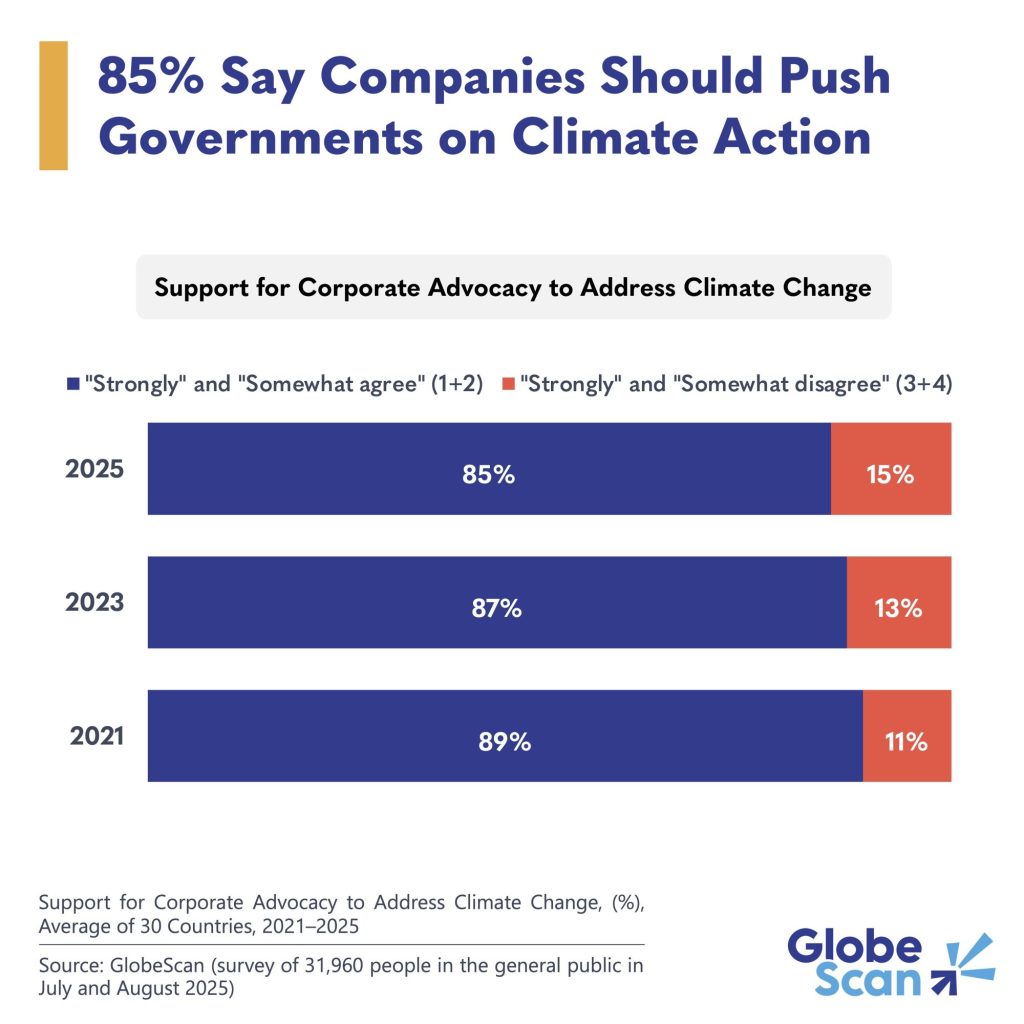85 percent of people say companies should push governments on climate action
Even in polarized countries, people want companies to engage governments. Read More

- There’s global consensus on corporate climate advocacy, with 85 percent of people around the world agreeing that large companies should actively encourage governments to take stronger climate action.
- Support is highest in emerging markets like Kenya, Nigeria, Vietnam and Indonesia, where citizens are especially eager for companies to act as catalysts for progress on climate policy.
- Despite political pushback in places like the U.S., Germany and the Netherlands, most people still want companies to engage governments on climate action.
At a time when it’s hard to find consensus on many issues — particularly in the sustainability space — new research shows a majority of the public want companies to step up and fill the climate change void left by some governments around the world.
New data from Trellis data partner GlobeScan shows that 85 percent of people around the world believe large companies should actively encourage governments to take stronger action on climate. While the percentage of those who strongly agree has slightly declined over the last few years, the overall consensus remains clear: People expect business to lead on climate advocacy. Only 15 percent of respondents express disagreement, underscoring the enduring public mandate for corporate climate leadership.
Support is especially strong in emerging markets, where citizens are looking to business as a catalyst for progress:
- Kenya (94 percent)
- Nigeria (94 percent)
- Vietnam (93 percent)
- Indonesia (92 percent)
Even in countries where climate policy is politically sensitive, such as Germany (70 percent) and the Netherlands (72 percent), strong majorities still support corporate engagement. In the U.S., where there has been significant pushback against corporate climate activism, as much as 78 percent of the public want companies to engage the government on climate action.

What this means
The public is not just open to corporate climate advocacy; they expect it. This presents a strategic opportunity for businesses to step into a leadership role that goes beyond internal sustainability efforts. Advocacy can build trust and legitimacy, especially in regions where climate impacts are felt most acutely. At the same time, silence or neutrality may be perceived as indifference. As global attention watches Climate Week NYC and COP 30 this fall, companies have a clear mandate to use their influence to shape policy and accelerate climate action.

Subscribe to Trellis Briefing
Featured Reports

The Premier Event for Sustainable Business Leaders
















